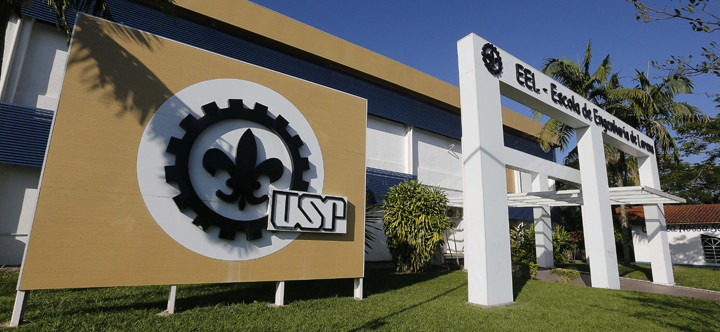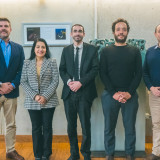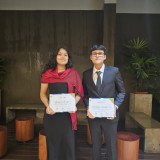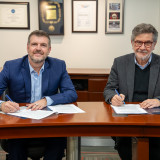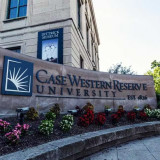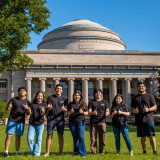- We are Utec
- Admissions
- undergraduate Programs
- Graduate School
- Companies
- Ventures
- Apply to UTEC
- English
- Español
Languages
Learn
About Us
Our Academic
Offer
Ingenuity,
dedication, and
the pursuit
of excellence
International
alliances
Learn
About Us
The university that empowers ingenuity, innovation, and entrepreneurship.
Our Academic
Offer
With our active learning methodology, our students experience engineering from day one.
Ingenuity,
dedication, and
the pursuit
of excellence
Our students' DNA: achieving highest academic achievement and personal development.
International
alliances
We've built strong relationships with the best educational institutions in the world.
Research
Experience
The right path to finding better solutions.
Sustainability UTEC
Sustainability documents
Contact:
Giancarlo Marcone
HACS DIRECTOR
gmarcone@utec.edu.pe
Learn
About Us
The university that empowers ingenuity, innovation, and entrepreneurship.
Our Academic
Offer
With our active learning methodology, our students experience engineering from day one.
Ingenuity,
dedication, and
the pursuit
of excellence
Our students' DNA: achieving highest academic achievement and personal development.
International
alliances
We've built strong relationships with the best educational institutions in the world.
Research
Experience
The right path to finding better solutions.
Sustainability UTEC
Sustainability documents
Contact:
Giancarlo Marcone
HACS DIRECTOR
gmarcone@utec.edu.pe
By Lucia Solis
«The collaboration began in 2014, through a project related to phenols. I knew some professors from the USP specialised in that area and they were encouraged to work with us» says Dr. Patricia Araujo, professor and researcher from the Departments of Bioengineering and Chemical Engineering at UTEC, who completed a Master's and Doctorate in topics of characterization of oil in the the University of Sao Paulo, where she also worked for ten years.
The project to which Dr. Araujo refers, consisted in the analysis of industrial effluents through the degradation techniques of phenols; aromatic compounds formed with a hydroxyl group. The method used by the research team was photochemical degradation through the Fenton / Photo-fenton technique, an increasingly popular procedure in Peru. The purpose was to disseminate the technique to improve processes in Peruvian industry, with organic effluents of this type, including the oil industry, textiles, tanneries, dyes, fishing, among others. This is how the cooperation between UTEC and USP began five years ago.
The initiative "Treatment of phenolic organic effluents from the industry through Fenton and Photo-Fenton technology", which was financed by Fincyt, culminated in 2017. From there, Dr. Araujo, along with other UTEC professors, continued looking for opportunities for joint works. «We want to work on the production of scientific papers. For this we are reviewing the most outstanding work from our students. The USP researchers are willing to work with us» she says.
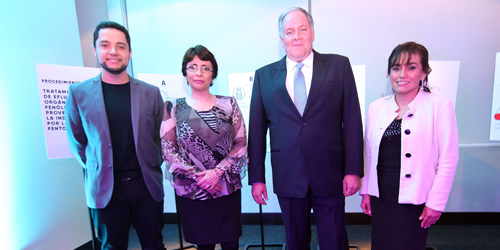
Dr. Elena Flores, professor from the same Department, also has a close relationship with USP. She participated in Dr. Araujo's project and since 2016, leads two applied research projects of a multidisciplinary nature called "Comparative Study of the Potential of Natural Fibers Endemic to Peru for Use as Reinforcement in Laminated Composites" (2016-2019) and " Manufacture of fiber cement panels using materials obtained from endemic plants of Peru "(2019-2021), both financed by the National Fund for Scientific, Technological Innovation Development (Fondecyt). Dr. Samuel Charca, professor from the Department of Energy Engineering and Mechanical Engineering at UTEC, is acting as principal investigator, with Dr. Holmer Savastano, professor at the Faculty of Zootechnics and Food Engineering, Department of Biosystems Engineering of the USP. The two projects are related to the use of Ichu fiber, an endemic plant in Peru, with the purpose of giving added value to this material.
«Thanks to the first project we sent two students to carry out research work at USP» says Dr. Flores. The students she refer to are Sandra Mori (Industrial Engineering) and Carlos Tenazoa (Chemical Engineering), who due to their academic performance, were able to carry out a research internship at the University of Sao Paulo. «USP professors are very interested in UTEC students receiving training in new technologies. It has been a very enriching experience for them. This year we will send another thesis student as part of the second project», she adds.
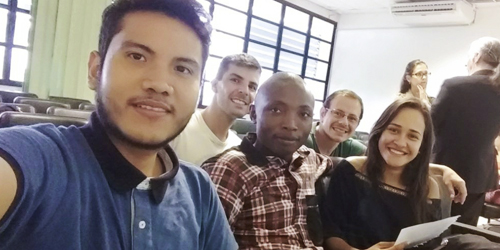
Carlos Tenazoa was the second UTEC student at USP as part of the first project. For him, the experience was difficult because he didn’t know the language in depth; but with the help of his colleagues and professors he was able to start communicating. «I learned to use equipment and tools that were useful to achieve the objectives of the research I was doing. I managed to strengthen my technical and soft skills necessary to be a successful professional» says Carlos.
Recently, UTEC and USP have formalized and strengthened their ties through the signing of an Academic Cooperation Agreement that will allow students to make exchanges and participate in joint research projects. «It is a very important contribution for students and teachers. We aim for the students to be involved in the projects, especially for their theses, they would be the first to be called to this program» says Dr. Araujo. For Dr. Flores, this collaboration means a challenge and an opportunity: «This agreement is very important. On the one hand the students will gain professional and personal experience, and we as professors could make joint publications and participate in more projects» she concludes.
EN UTEC VENIMOS DESARROLLANDO LA TECNOLOGÍA
Y LA INGENIERÍA QUE NECESITA EL MUNDO DEL MAÑANA
Carreras en ingeniería y tecnología que van de la mano con la investigación y la creación de soluciones tecnológicas de vanguardia, comprometidas con las necesidades sociales y la sostenibilidad.
Decide convertirte en el profesional que el mundo necesita. Estudia en UTEC y lleva tu ingenio hacia el futuro.
Noticias recientes
-
- STUDY ABROAD
- Studying in Peru
- Living in Peru
- FAQ
- Application Form
- Contact us
-
- EXECUTIVE EDUCATION
- Executive Education
- Short Courses
- Inhouse Courses
- Calendar
